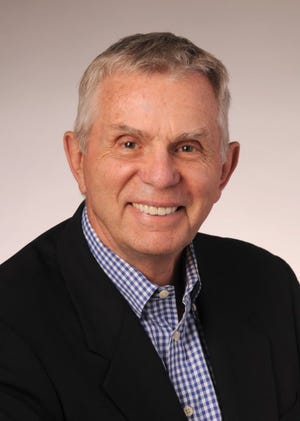Public education under siege in Florida under DeSantis

For many on the far right, “public” education should be more “private” and more reflective of contemporary conservative dogma.
The epitome of this philosophy is Betsy DeVos, who served as the country’s secretary of education under Donald Trump. The New York Times describes his DeVos, an avid supporter of charter his school (which is publicly funded and privately run) and private religious schools: Betsy DeVos.
If she was still the country’s top educational official, DeVos would no doubt have found like-minded compatriots in Florida Governor Ron DeSantis. From the beginning, DeSantis has followed the same line as his DeVos, pushing privatization at every opportunity.

Over the past three years, Florida’s fastest-growing private school voucher program—the largest in the nation—has undergone a dramatic overhaul. Not only has the scope and eligibility of the program expanded under DeSantis, but it has also benefited from new funding methods. Florida law allows private school vouchers to be funded directly from general state revenues instead of relying heavily on donations from private companies (which receive tax credits).
As DeSantis sees, public funding of any kind automatically makes “private” voucher recipients (including religious schools) part of the “public” education system.
Politics-savvy advocates have long touted that private school vouchers offer students a clear “choice” from what they consider to be “failed” public schools. But when Governor DeSantis says that all parents can use public funds to send their children to the schools of their choice, without government influence, he’s really talking about stepping up privatization. In fact, the plan to pour more and more public money into private schools is, to its ultimate iteration, the very antithesis of universal public education.

The governor’s campaign to empower K-12 education doesn’t end with more funding for private schools. This includes mandating what can (or can’t) be taught in public schools and the blatant politicization of local school boards.
What is particularly clear about new laws outlining what teachers can say about race, sexual orientation, gender identity, or civics in the classroom applies squarely to public schools, where public funding One thing that seems to apply to public schools, rather than private religious schools and most charter schools that receive but are operated externally, is the curriculum policy established by the local school board.
There was a time when local school boards focused primarily on the concerns of teachers, parents and local civic groups. no more. Under DeSantis, a national culture war reaches classrooms, and board members are forced to deal with a slew of new laws designed to rid public schools of what the governor calls “an awakened ideology.” are forced to
More about Karl Lamy:
Supreme Court Ruling, DeSantis Antics Threaten Separation of Church and State
A Gator Fan’s Tired Lament: Amateurism Tradition Disappearing from College Sports
Congress focused on cultural issues to advance DeSantis’ personal political agenda
The battle to reshape the local school board is multifaceted. At one point, DeSantis threatened to deduct school board members’ salaries if they resisted his anti-masking rules. Even more amazingly, he created a new office within the Ministry of Education with unilateral authority to allow applications for charter schools without input from local authorities.
Now he’s running around the state endorsing candidates running for school board seats, which are nominally nonpartisan. And his gubernatorial re-election campaign put out a survey of school board members aimed at gauging their loyalty to his “anti-awakening” agenda.
School board members are elected officials and can be expected to face controversial and even political issues. Classroom teachers, on the other hand, are career professionals and shouldn’t get caught up in today’s ferocious partisan firefights.
Yet teachers in Florida are literally scrambling to figure out how best to deal with new orders from Tallahassee. And if they don’t get it “correctly,” their school district is now the subject of a state-sanctioned lawsuit in which disgruntled parents claim emotional injury to their children. increase.

Florida’s new law, intended to clean classrooms of so-called “awake” attitudes to cultural issues, is not only condemned, but vague and confusing. It has the effect of not only pushing skilled teachers out of business, but silencing those who remain. .
Adding insult to injury, here’s the governor’s answer to the unfolding teacher shortage. (a) disrespect formal teacher education; (b) Replace diminishing ranks with unqualified veterans, firefighters, paramedics, and police officers. why not? Cheaper than paying them what they’re worth.
Karl Ramey is a former Washington Communications attorney and monthly columnist for The Sun, who lives in Gainesville.
join the conversation
Share your thoughts by sending a letter to the editor (200 words maximum) to letter@gainesville.com. The letter should include the author’s full name and city of residence. See bit.ly/sunopinionguidelines for additional guidelines for submitting letters and long guest columns.
Journalism is important. Your support is important.
Get a Gainesville Sun digital subscription. Includes must-see content from Gainesville.com and Gatorsports.com, the latest news and updates on all your devices, and eEdition access. To sign up, please visit www.gainesville.com/subscribenow.













